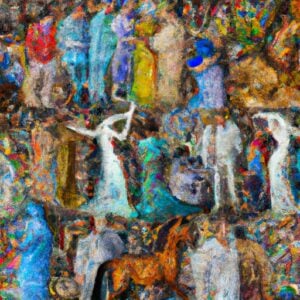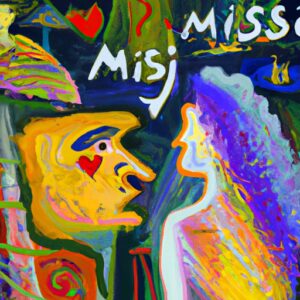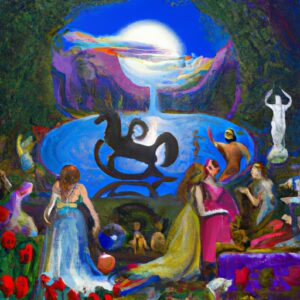“Italian for nights” is a common clue in many crossword games.
People search for its solution on Google every day – and if you’re among them, I get you.
I hate it when I have to look for solutions online. So, I thought I could take the chance to write a new post.
The Italian translation of “nights”
The Italian word for nights is notti. It’s the feminine plural of notte, and it is pronounced: “not-tee“.
Let’s see it in context. As you can imagine, nights are celebrated in many Italian songs.
The first example that comes to mind is the pop song “Certe notti” (“Some Nights“) by Italian singer Ligabue.
“Certe notti somigliano a un vizio / E tu non vuoi smettere, smettere mai”
“Some nights look like vice / And you never, ever want to quit.”
Italians also use the plural notti when saying “every night.
Mario torna a casa tardi tutte le notti.
Mario gets home late every night.
That’s pretty much everything you need to know about notti. So, if you searched “Italian for nights” to find a solution for your crosswords, you can go back to it.
But if you also want to learn some more Italian, keep reading – there’s much more to say about the singular notte!
2 ways to say “night” in Italian
The right word to say “night” in Italian is notte. You already know that. However, Italians will often use sera (“evening“) to describe what English speakers would call night.
In general, it’s fair to say that you can use notte and sera interchangeably for any time before midnight.
That’s why “Saturday Night Fever” is called “La febbre del sabato sera” in Italian. It is also the reason why you’ll likely hear things like:
Il ritrovo è alle 11 di sera ai parcheggi dietro al Club.
The meeting is at 11 pm at the parking spots behind the Club.
You can also say serata to describe a night out. For instance, if you go out on a first date, the right thing to say when you’re about to go home is:
Ho passato davvero una bella serata con te!
I had such a nice night with you!
But everything changes after midnight – like a linguistic Cinderella. Whereas 11.59 pm is still “le 11.59 di sera”, 1.00 pm becomes “l’una di notte“.
Or, if you come home at 5 am after a night of fun with your Italian friends, you might hear them say something like:
Che nottata!
What a night!
Common expressions with notte
Notte also features some Italian expressions.
For instance, if you’ve read my post about how to say good morning and other Italian greetings, you already know that buonanotte means “good night” in Italian.
Here are common expressions with notte:
- a notte fonda: late at night / in the dead of night
- tutta la notte: all night long
- superare la notte: to make it through the night
- la notte dei tempi: the dawn of time
- notte in bianco: sleepless night
The last one deserves some context. The literal translation of “notte in bianco” is “white night“, and the reason why it is used to describe sleepless nights dates back to the Middle Ages.
Back then, aspiring knights had to go through a rite of passage the night before their investiture ceremony.
They would dress in white as a sign of purity and spend the night praying inside a chapel until the sun rose. Their dress and the act of staying awake lead to the modern use of “notte in bianco“.
And since we mentioned it… white wasn’t only a symbol of moral purity in Europe. It could also symbolize chastity.
So, in modern Italian, you can say “andare in bianco” (“to go white“) to describe the act of going back home after a date went bad – or (more generally) of failing at something.
Perché sei a casa così presto? Sei andato in bianco?
Why are you home so early? Did your date go bad?
Crosswords and dates
I don’t know whether you are a loyal reader of this blog or if you’re here because you searched “Italian for nights” to find a solution to a crossword clue.
However, now you have learned a set of common words and expressions that will make your Italian more fluent.
You also know how to tell your new crush that you had a wonderful night with them or how to say goodnight in Italian to the ones you love.
My job here is done. See you soon 🙂









